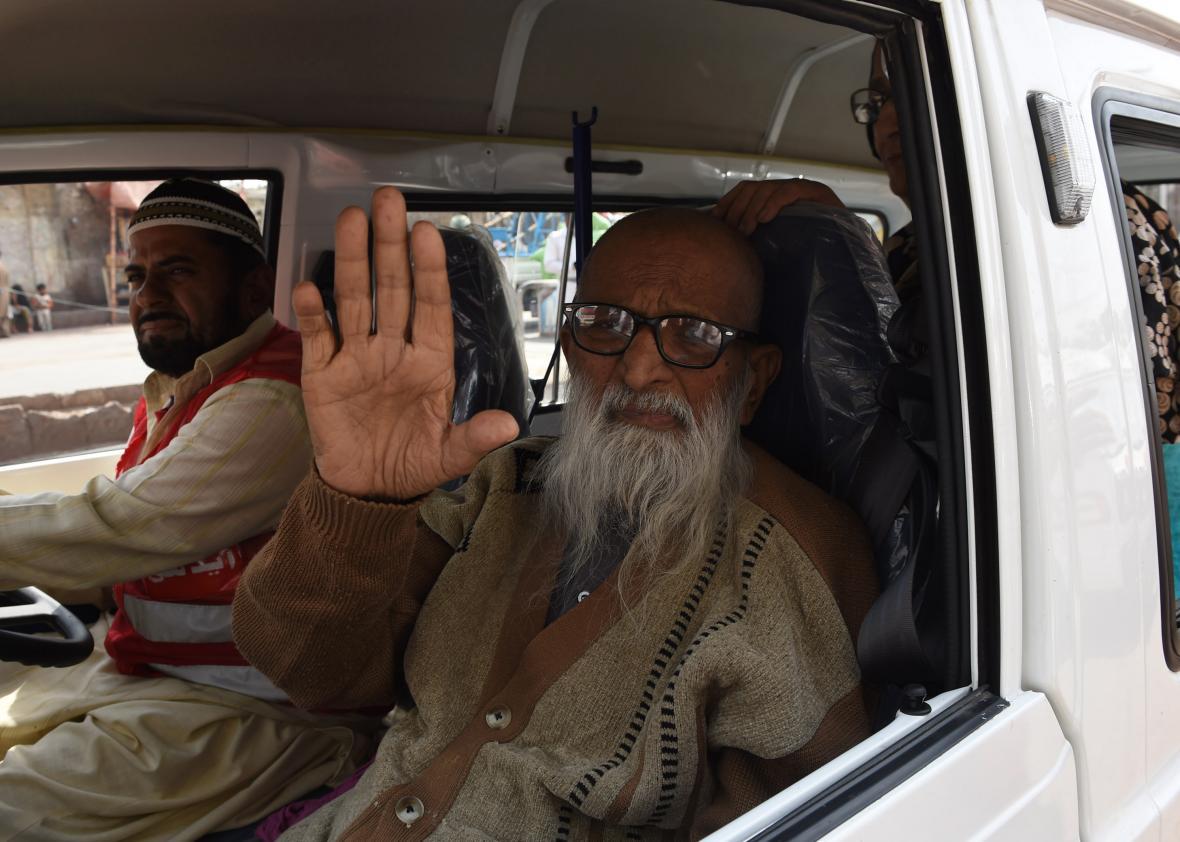The death of the legendary activist and philanthropist Abdul Sattar Edhi is a blow to all those who have striven to improve Pakistan, but also a reminder that individuals can effect extraordinary change. Edhi was one of those people, as admirable as they are rare, who simply refuse to let the state of the world detract from their mission of making it better.
Edhi, who passed away on Friday at the age of 88, lived a life of such astonishing accomplishment that his story never ceases to amaze. By the time his family had moved to Karachi, Pakistan, after British India was partitioned, he had already shown great compassion in taking care of his mother, who suffered from debilitating mental health problems. Deciding to devote his life to charitable works, Edhi initially started working with Memons, the ethnic minority of which he was a member, and which had established a larger presence in Karachi after partition. But his ambitions were broader: As he memorably put it, “Humanitarian work loses its significance when you discriminate between the needy.” (His father, when challenged about how much money he had given to charity, pointed at his son and exclaimed, “I have given a whole human being to it. Watch him.”)
By 1951, not even 24 years old, Edhi had set up his own clinic. He used his savings to hire a doctor to see patients and buy medicine, which he sold cheaply. The initial office was tiny; Edhi would often sleep outside it, in case people needed help at night. Edhi’s charitable works grew over time: He traveled to different countries to study their health systems and strategies. He spoke up about women’s health issues in the 1950s; he offered adoption services, and help for the mentally ill; he established an ambulance service that remains crucial to the country’s welfare. One particularly moving and valuable service involves placing cradles outside Edhi offices, thus encouraging people to leave “illegitimate” children to be cared for, rather than killed or abandoned. In any context, this would be heroic work; in cities like Karachi, without a social safety net of government programs and services, it is even more necessary.
Nearly 70 years after he began his humanitarian work, the Edhi Foundation is the largest and most important charity in Pakistan. I called Edhi “legendary” earlier, and while the word is appropriate, it also seems a little out of place: Edhi was so understated and modest (he famously had only two sets of clothes) that it is hard to believe he was such a forceful champion for his causes. (For those to whom such modesty and understatement evoke Gandhi, it should be noted that Edhi had few of Gandhi’s questionable and retrograde views on social questions.) His decency may have been borderline fanatical, but that is the only thing about him that was. (None of this prevented him from being interrogated for eight hours by U.S. immigration authorities, who also confiscated his passport, in 2008.)
Edhi was not considered especially political, although in a country like Pakistan, the mere act of speaking up for religious minorities and discussing the importance of women’s health are of course controversial and political positions. (Edhi did both.) He will be sorely missed by the people he inspired and the people he helped, and he serves as a reminder that individuals not only should do more, but that most of us can do more, too.
